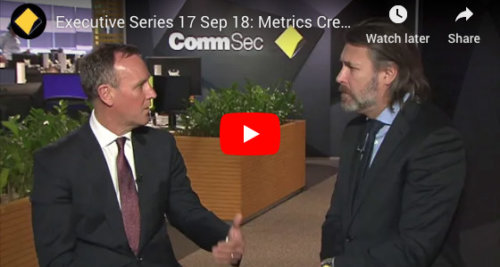Treasurer considers axing commission loophole for listed funds

In huge news The AFR’s John Kehoe reports today that “Treasurer Josh Frydenberg has set up a snap review to consider closing a loophole that allows financial advisers or stockbrokers to receive lucrative commissions for selling poorly performing listed investment funds to mum and dad investors”.
“In a move set to send shockwaves through the financial services industry, Mr Frydenberg has directed Treasury to hold a four-week consultation on the merits of the commissions, known as “stamping fees”, paid by fund managers, for selling their newly floated listed investment entities,” Kehoe continues.
“Public consultation will allow the government to make an informed decision on whether to retain, remove or modify the stamping fee exemption in order to ensure that the interests of investors are protected and capital markets remain efficient and globally competitive,” Mr Frydenberg said in statement late on Monday afternoon.
The full media release from the Treasurer is enclosed here:
The Morrison Government is today announcing that Treasury will undertake a four week targeted public consultation process on the merits of the current stamping fee exemption in relation to listed investment entities.
Stamping fees are an upfront one-off commission paid to financial services licensees for their role in capital raisings associated with the initial public offerings of shares.
Public consultation will allow the Government to make an informed decision on whether to retain, remove or modify the stamping fee exemption in order to ensure that the interests of investors are protected and capital markets remain efficient and globally competitive.
Parties that are interested in contributing to the consultation should email stampingfeeteam@treasury.gov.au.
The 2012 Future of Financial Advice (FOFA) laws expressly banned payments of conflicted selling fees, or sales commissions, from product manufacturers like fund managers to financial advisers who are giving their retail customers personal advice.
FOFA did this because these sales incentives had resulted in repeated mis-selling crises whereby advisers were recommending products that were inappropriate for their clients in order to capture sales commissions.
I wrote about this extensively in 2014 when the Coalition remarkably tried to roll-back FOFA by heavily diluting advisers’ best interests duties to their clients, and, even more astonishingly, proposed to allow advisers to be paid sales bonuses by their employers for recommending in-house products. Thank god that never saw the light of day.
For some bizarre reason, listed investment companies (LICs) and listed investment trusts (LITs) were granted an exemption from FOFA’s ban on fund managers paying kick-backs to advisers in 2014. Since that time there has been an explosion in managers listing their funds on the ASX and paying advisers significant uncapped sales commissions, often as much as 2% to 3% of the money the adviser brings in for them. This has led to the LIC/LIT sector more than doubling in size to over $50 billion, and is killing the entire mission behind FOFA—that is, the vision of Australian financial advice being conflict-free. Even more worryingly, the products that have been listed since 2014 have often been very complex and risky (eg, hedge funds or leveraged global junk bond funds).
All fund managers are being forced to consider using the ASX and conflicted selling fees as key tools to raise money for their products with more than 20 to 30 LICs/LITs reported to be in the pipeline this year. Just in the last few days there have been multiple high yield funds launched on the ASX that are proposing to raise more than $1.3 billion in weeks by paying advice firms sales commissions of up $30 million. In normal, commission-free FOFA-regulated channels (ie, via an unlisted fund or ETF) this money would typically take years to source.
And let’s be clear: this is not an LIC/LIT attack. As products, LICs/LITs have a very important role to play, and can be used to offer consumers special incentives, such as equity in the fund manager. I personally recommended that my own mother invest in an LIT only a few months ago! And there are many exceptional managers that offer them, including Magellan in equities and Metrics in fixed-income, who will always thrive irrespective of what happens to commissions. Indeed, it was interesting to hear Geoff Wilson say that when LICs/LITs were captured by FOFA between 2012 and 2014 he could not recall any real impact on the industry.
The key question is simply whether we want to kill FOFA by allowing managers to circumvent it by paying advisers selling fees to promote their listed wares. Some argue that advisers are not being influenced by the sales commissions, which are often larger than what real estate agents earn. These folks also point out that other advisers are rebating the fees to their clients. If this is the case, and selling fees have no impact on adviser behaviour, which in my view is quite improbable, then there should be no problem banning them and bringing LICs/LITs back into FOFA.
As the AFR’s Kehoe notes, there have been a large number of key stakeholders who have recently recommended closing the LIC/LIT commission loophole including:
- ASIC in its unequivocal advice to government (repeatedly) in 2013 and again in August 2019, which Kehoe sensationally revealed on 2 January after a Freedom of Information search;
- The Labor Party’s shadow financial services minister, Stephen Jones, in several media releases and a letter sent to Josh Frydenberg last week;
- Leading thought leaders in the funds management industry, including Magellan’s Hamish Douglass, who notably runs LICs/LITs, and PM Capital’s Paul Moore, who likewise runs multiple LICs (and waded into the debate with strong statements last Friday);
- Respected investment consultants and funds management researchers like Jerome Lander and Jason Coggins; and
- Some of the most successful financial advisers in the country, such as Will Hamilton, who was recently appointed by the government to the board of the the Financial Adviser Standards and Ethics Authority, and Koda Capital’s Paul Heath, whose firm advises on more than $6 billion.
Some counter that FOFA’s best interests duty is more than enough to ensure that conflicted sales commissions do not result in advisers pushing clients into inappropriate products. Koda Capital’s Paul Heath has responded:
In January 2018, ASIC released Information Report 562 – “Financial Advice: Vertically integrated institutions and conflicts of interest”. The report was a bombshell and highlighted the way conflicts of interest undermine the best interests duty.
In reviewing the advice files of five of the largest advice institutions in Australia, ASIC found that whilst inhouse products represented only 21% of the approved product lists, the inhouse products attracted 68% of the advised clients’ funds. Furthermore, in 75% of the cases reviewed, ASIC concluded the adviser had not demonstrated compliance with the best interests duty…
Yes, an adviser does have a duty to act in the best interests of their client. But where a conflict of interest exists, a client cannot be certain the best interests duty is affording them the protection they would expect. The professional rigour of “a reasonable investigation” is utterly compromised. As Kenneth Hayne noted in his final report of the Royal Commission, “Experience shows that conflicts between duty and interest can seldom be managed; self-interest will almost always trump duty”. Selling fees on LICs create a conflict of interest that actively works to undermine the consumer protections afforded by the best interests duty.
Others, including myself, have claimed the new Code of Ethics established by FASEA will prevent advisers from accepting kick-backs from fund managers. But advisers who currently capture these commissions and folks like Morningstar scribe Graham Hand have claimed this analysis is wrong. Hand says his “interpretation of the Code of Ethics is that it does not ban financial advisers and brokers from receiving commissions on LITs and LICs”. This is based on a review of the non-binding “guidance note” issued by FASEA that accompanies the Code of Ethics, the latter of which encompasses a range of legally-binding standards. Yet respected legal experts like Gadens concur with my analysis. In a recent AFR news report, Kehoe reported that:
Liam Hennessy, director at corporate law firm Gadens…warned that he interpreted the to mean that stamping fees – effectively sales commissions – paid to financial advisers and brokers for corporate capital raisings “must now be declined altogether or rebated in full to investors under the requirements of the code”. “The inability of advisers to receive stamping fees and commissions going forward is a notable by-product of the code when applied literally.”
We all want funds management and financial advice industries that survive and thrive on their merits rather than having outcomes determined by conflicted economic incentives.
After decades of non-stop scandals contaminating the advice sector, which was brought to a head by the recent Royal Commission, we also want to ensure that the tiny minority of conflicted advisers do not end up tarnishing the vast majority of hard-working, intelligent, and well-intentioned professionals that valiantly work in their clients’ best interests.
This is the really sad thing. I come across advisers every week. And I reckon that more than 95% are diligent, thoughtful, and focussed on servicing their clients’ needs in the best way possible.
The conflicted sales commission loophole for LICs/LITs is having a huge impact on the industry and risks unwinding years of important, FOFA-induced reforms. Fund managers are shifting their capital raising efforts to the ASX. Advisers are transforming their business models to focus on sourcing money for them and capturing the sales commissions, which in some cases account for a large share of their profits. And some consumers may be getting product—be it risky hedge funds or leveraged global junk bond funds—that have at the very least a questionable role in their portfolios, as ASIC has pointedly noted.
In particular, the regulator has asked how advisers could be satisfying their best interest duties when they know that LICs/LITs have consistently underperformed the wider market and that 75% of LICs/LITs trade at about a 9% discount to their net tangible assets (including in the much more mature fixed-income LIC market in the United States where three-quarter of all bond LICs trade at a discount to NTA with the average discount 6%).
by CHRISTOPHER JOYE | January 29, 2020 | Livewire
Other News
Podcast: The Rules of Investing | From Cold Call to Capital Giant
In this episode of The Rules of Investing, Metrics Group CEO & Managing Partner, Andrew Lockhart discusses the conditions that…
Metrics Credit Partners Completes Acquisition of Taurus and BC Invest
Metrics Credit Partners (“Metrics”), a leading Australian based alternative asset management firm, has today successfully completed the acquisition of Taurus…
INSIGHTS
MCP Income Opportunities Trust (MOT) lists on ASX
Sydney, 29 April 2019: The Trust Company (RE Services) Limited (ABN 45 003 278 831) (Responsible Entity) is the responsible…
MCP Master Income Trust wins Lonsec Listed Fund Award
The award came a year after MXT was listed on the Australian Securities Exchange






